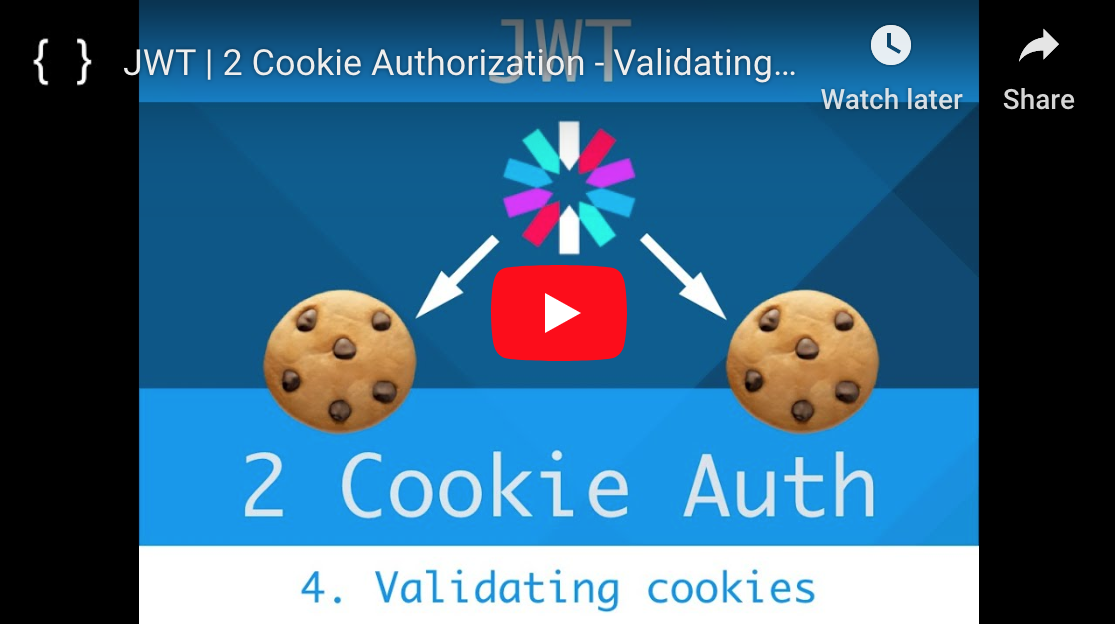Managing JSON Web Tokens (JWT) with 2 Cookie Auth
In this example application, we use 2 cookies in the browser to manage the transmission, validation, and expiration of our JSON Web Token (JWT).
Tutorial Available
Running the Server
With NodeJS installed, you can started the server by running,
node app.jsOR
npm run startDevelopment
This simple server can be easily extended. After cloning this repository you can start developing locally.
Locally (without Docker)
- Install Nodemon, Nodemon will watch for file changes and restart the NodeJS process. This allows for faster development and testing.
npm install -g nodemon- With Nodemon installed, start the server using Nodemon
nodemon app.jsOR
npm run start:devUsing Docker
I prefer to use Docker for local development wherever possible. This allows me to have a consistent development environment.
Start Docker Container
With Docker installed, we can start a container using the latest NodeJS Docker image.
docker run -it --rm -p 8080:8080 -v $(pwd):/api -w="/api" node bashStart the application in development mode using Nodemon inside your Docker Container
npm run start:devTo stop your running NodeJS API server
ctrl + cTo quit your Docker Container development environment, in your terminal:
exitThis will cleanup any running containers, (note: the Docker image will still exist on your machine)
 )
)